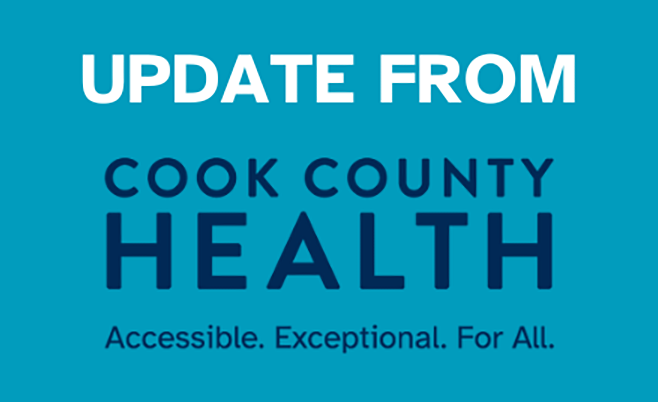A stronger pulse
Carvalho, like Batts before him, needs to give Cook’s health system intensive care
August 15, 2012
The independent panel that runs Cook County’s health system has a new chairman, David Carvalho. Chosen by his fellow board members last week, he replaces the no-nonsense Warren Batts, who grappled with meddling county pols and spreadsheets that dripped red ink.
Carvalho needs to lead the health panel with the same do-it-better-for-less attitude that Batts championed in his four years as the panel’s first and only chairman. Here’s why:
As is, the county health system clings to annual fantasies of overly optimistic revenues, only to bust its budgets year after year. That doesn’t build confidence, either among members of the Cook County Board or among taxpayers whose dollars fund much of the medical care. What’s more, the system never has the momentum, or the money, to focus primarily on delivering better quality care. That’s never been more crucial than it will be as more of its patients gain the freedom to get their care elsewhere.
Carvalho has a strong background. He chaired the panel’s Finance Committee the last four years and, before that, helped get Stroger Hospital built. He knows that the county’s system has an improving but still thready pulse: As of the end of July, the health system was $21.7 million short of its budget in collecting patient fees, health system CEO Ram Raju tells us.
But that’s better than the numbers at the same point in 2011: Then, the county was $60.1 million short.
Credit Raju’s aggressive streamlining for the improved bill of health. Raju has whittled down a mountain of backlogged billing statements that weren’t being mailed to patients and their insurers, and he has helped the county grab more federal funding.
This is vital because as the county’s health and hospital system budget goes, so goes the financial health of Cook County government. Last year, for example, the health system burst its $911 million budget by nearly $170 million. At the same time, the county’s roughly $3 billion total budget hemorrhaged red by nearly the same amount. That is, the county had a deficit mostly because its health system had a deficit. This year, as of the end of May, county government was running an $11 million surplus — yes, a surplus — that would be larger if the health system was delivering all of its expected revenue.
Carvalho leads a panel with four new members but the same urgent mission: Stabilize the patient.
One key: Attract and retain Medicaid patients. In 2014, when Obamacare fully kicks in, thousands of county patients suddenly will be covered by insurance. They can choose where they get their care. Carvalho & Co. need to make sure the county keeps most of those patients and their Medicaid reimbursements.
The county needs to make the system “more attractive to patients,” Carvalho tells us, “or once they have choices, they will go elsewhere.” If that happens, the system will be left mainly with the uninsured poor who can’t pay for the services they receive. No insurance or government program will reimburse Cook County taxpayers for their care.
That’s one reason Cook County officials are asking federal officials for permission to add 115,000 of those new Medicaid patients to the rolls early, before their 2014 eligibility. Most of these patients already are being treated in county clinics and hospitals. Signing them up for Medicaid early wouldn’t cost the state a penny it isn’t already paying. The federal reimbursement, which covers about half of Medicaid treatment costs, could be a $198 million windfall for the county health system, Raju tells us.
These early arriving Medicaid patients would be able to obtain care only in the county’s system until 2014. After that, yes, they could go anywhere for treatment. But those months would give the county a prime opportunity to earn the loyalty, trust — and future business — of those patients.
Raju is driving a smart shift in focus from inpatient care to outpatient services. That shift to a more robust primary care model provides preventive and other early services so that people don’t end up in the hospital for expensive stays that they — and hard-pressed county taxpayers — can’t easily afford.
Carvalho is a lawyer, not a doctor, but he needs to be a healer of the county’s health system. The patient is improving. But it needs intensive care.
Copyright © 2012, Chicago Tribune

